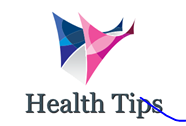10 Tips

- Schedule Your Day
5 min.
Required Time
Without a schedule, it’s frighteningly easy to get to the end of the day and realize you’ve achieved nothing of importance. At the very least, you should make a list of the tasks you want to accomplish during the day and decide where your priorities lie.
Make a list of the tasks you want to complete by the end of the day. Try to be realistic about your efficiency instead of creating a lengthy list of tasks that will be impossible to complete.
Use the Eisenhower Decision Matrix to rate the importance of each task: 1 (important and urgent), 2 (important, but not urgent), 3 (not important, but urgent), or 4 (not important, not urgent).
.jpg)
- Chunk Down a Project (or Task) into Manageable Steps
4 min.
Required Time
Sometimes a project is so overwhelming that you simply don’t know where to get started. But if you set aside time during a stack to create a step-by-step plan, you can improve your productivity because you’ll know where to get started.
For each of your major projects, take a few minutes to chunk it down into simple-to-complete steps. By breaking a task into specific actions, you’ll have a better understanding of what needs to be done and how to schedule the work into your day.
- Research One “Side Hustle”
5 min.
Required Time
A side hustle is another way to describe a part-time activity that could turn into a full-time income. But there are too many choices out there, which makes it hard to pick one and stick with it.
To research a side hustle, the best starting points are Nick Loper’s Side Hustle Nation and his book Buy Buttons. Both provide a great overview of the different income-generating opportunities and what you need to do to create a similar business.
Ask yourself a few key questions like:
Do I have time to work on this side hustle?
What equipment is required to get started?
How much money do I need to invest in it?
Does the type of business match my personality?
Can this business scale into a full-time income?
- Make One Business Connection
5 min.
Required Time
You’ve probably heard the expression, “It’s not what you know. It’s who you know.” Well, it’s true for every area of life, but this is especially true when it comes to your career.
There are many ways to improve your business network. Here are five resources you can use to get started:
LinkedIn: The best social media site for making business connections and profiling your skills, knowledge, and areas of expertise.
Beyond: Another social media site for professionals, with over 50 million registered members.
Meetup: The preferred site for finding specific groups in the area and connecting with people who are interested in your career field.
Facebook Groups: One of the best resources for finding people who share a mutual interest. There are millions of groups here, so it’s not hard to find a few that specialize in your industry.
Google Plus: While use of Google’s social site has diminished, it’s still embraced by folks in the business and technology fields. So if have a job like that, then this is a great place to look.

- Review Your Goals
5 min.
Required Time
Everybody has goals. Whether they are big or small, we all have things that we want to accomplish. Sadly, the daily hustle and bustle of life can make us get off track.
You need to review your goals so that you can:
Create plans to reach those goals
Put your day in perspective
Know what’s important to accomplish
You can set goals for the day or the year, but you can't just aimlessly wander around on a day-to-day basis. Make sure you use every minute for what it's worth and accomplish what you set out for.
Read more about Goal-Setting: How to Set Clear and Goals you can Achieve
Finance Morning Routine Habits
- Track Your Expenses (from the Day Before)
5 min.
Required Time
Get started by keeping all the receipts, credit card statements, and notes (in an emergency) for each expenditure. Then, at the end of the day, jot down a description of the purchase and the amount. (This should be a daily habit because it’s easy to forgot those small purchases that you make throughout the day.)
From there, input this information into one of the following tools:
A notebook (yes, this is a low-tech approach, but some folks like having a string of notebooks that they can use to maintain their records).
A spreadsheet program, like Microsoft Excel.
A Cloud-based software program and app like Mint.
- Review Your Budget
3 min.
Required Time
There are two budgeting habits that you can build. The first is the daily checkup that neatly fits into any regular stack. Here, you’ll look at your budget as a reminder of what you’re allowed to spend for each category.
The second habit is the weekly budget review. This thirty-minute routine is important because it gives you a complete picture of where you’re spending your money and if you’re sticking to the plan.
During this weekly analysis, look at each category and ask questions like:
“Are my expenditures under what I’ve allotted for that category?”
"Should I increase or decrease the cap for a particular category?”
“Is there a type of spending that I can completely eliminate?”
“Why did I purchase each item? Is it because it’s a need or a want?”
“Are there substitute habits or purchases that can minimize what I’m spending?”
“Can I find any additional ‘financial holes’ that can be plugged?”
“Is my money being spent on the things that truly matter to me?”
“What was the last item I regretted purchasing?”
“What’s holding me back from taking action?”
“How would my budget look without debt payments?”
“What’s my true hourly wage?”
“What can I do to increase my income?”
“If I died today, would my family be okay?”
“Am I setting a good example for my children?”
“Where do I want to be financially one year from now?”
“Do I have enough of an emergency fund?”
“How much am I spending (and saving) each month?”
- Conserve Your Utilities
5 min.
Required Time
Turning off the lights and appliances in your home, office, or apartment can save you a significant amount of money when it comes to your monthly utilities. Not only is it simple to do, but it also helps the environment.
To supercharge your efforts, you can add a series of tiny actions into your daily routine:
Turn off lights whenever you leave a room.
Power down electronics when they’re not being used. (Many electronics will often go into “standby” mode that still uses some electricity.)
Open windows and use fans for cooling in the summertime, saving the air conditioning for those oppressively hot days.
Open the blinds and shades in the winter, which lets the sun shine in and warms your home without expending additional energy.
Match your pot size to the proper sized burner. Using a small pot or pan on a larger electric coil means you expend more energy to get the same result.
Use cold water to do loads of laundry. The results are nearly as good, but it costs about 40 cents less per load of laundry than washing clothes with hot water.
Turn off the water heater if you are going to leave your home for a few days. It takes an hour to get a water heater to reheat the water and saves quite a bit of energy over the days you are gone.

- Pack a Meal, Snack, and Coffee
5 min.
Required Time
Preparing and packing the food items you consume every day is both a healthy choice and a wise financial decision. Author David Bach often talks about what he calls The Latte Factor, where a simple way to save money is to eliminate those small, recurring purchases that add up to a substantial amount of cash. You can put his advice into action by preparing your, coffee (or tea), and a snack before leaving your home in the morning.
Check your kitchen for what you could bring as a snack or for lunch. Place it with your purse or car keys so you don’t forget it when you leave. Or make coffee at home and use a travel mug to take it with you.
- Read a Personal Finance Article
5 min.
Required Time
You can never be overeducated, especially when it comes to personal finance. In fact, I recommend building a self-education habit where you read books, listen to podcasts, and scan personal finance articles. If you don’t have time for these activities, then I’d recommend checking out at least one personal finance article a day.
Here are a few personal finance websites that I’d recommend checking out:
Get Rich Slowly
Money Crashers
Budgets Are Sexy
I Will Teach You To Be Rich
Wise Bread
The Simple Dollar
If you want a simple way to scan these websites, then you can sign up for a free Feedly account, add these sites to your feed, and look through it during a regular stack.
Health Morning Routine Habits

